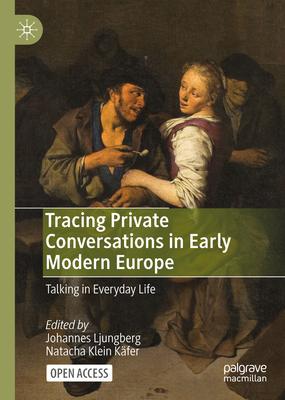This open access book provides a multifold exploration of how people in early modern Europe understood, conducted, and actively used private conversations. From sharing personal matters to discussing delicate secrets, all layers of early modern society had their motives for wanting to keep certain exchanges out of public eyes and ears, and ways of trying to achieve this. Detecting such instances in historical sources typically becomes a complex pursuit, full of subtle references that require creative approaches, especially when it comes to more informal practices. Yet, in a reading against the grain, different sources can offer us hints of how conversations took place in private.
The book consists of a historiographical and methodological introduction to the study of private conversations, followed by ten case studies from a variety of cities, villages, and countryside across early modern Europe. The concluding epilogue suggests some pathways to further explore the terrain of how people have talked in private in past societies.












